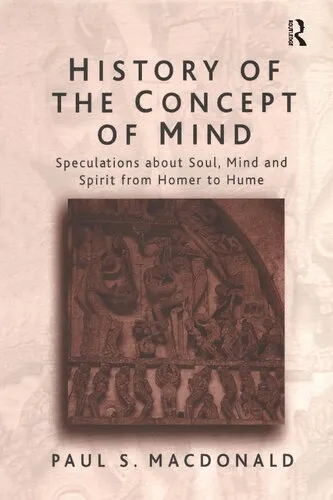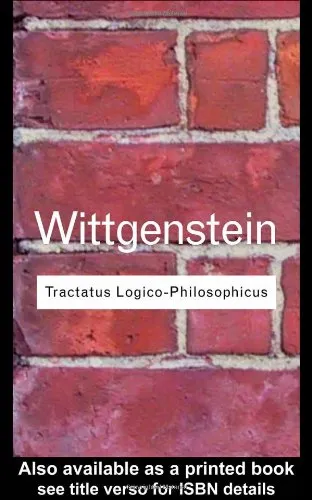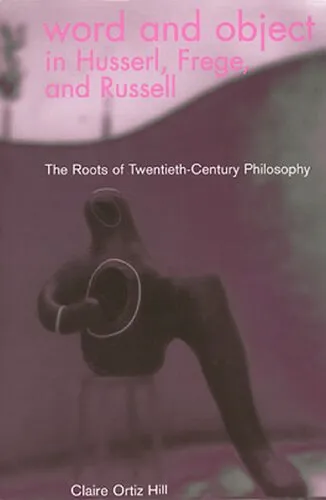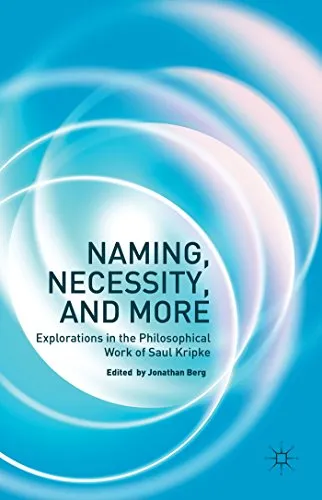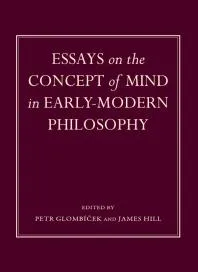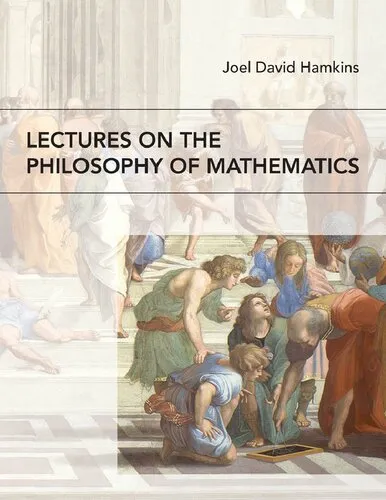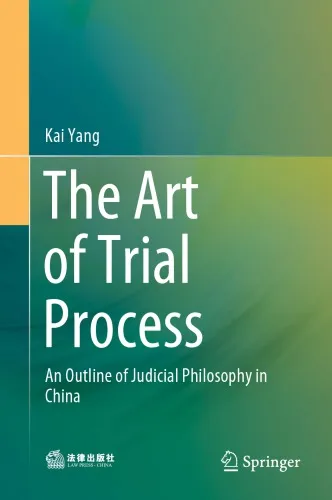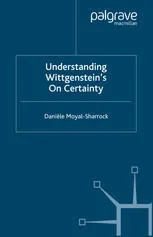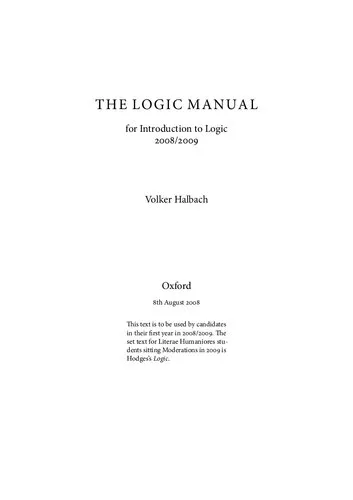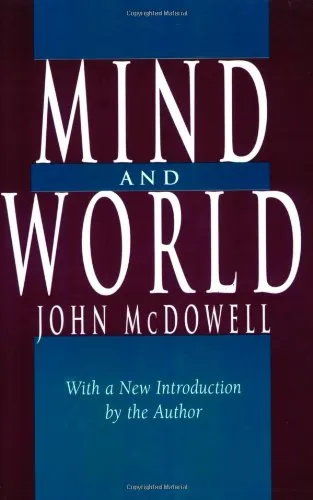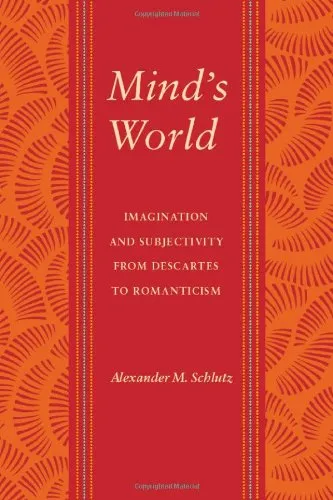History of the Concept of Mind: Volume 1: Speculations About Soul, Mind and Spirit from Homer to Hume
4.5
بر اساس نظر کاربران

شما میتونید سوالاتتون در باره کتاب رو از هوش مصنوعیش بعد از ورود بپرسید
هر دانلود یا پرسش از هوش مصنوعی 2 امتیاز لازم دارد، برای بدست آوردن امتیاز رایگان، به صفحه ی راهنمای امتیازات سر بزنید و یک سری کار ارزشمند انجام بدینکتاب های مرتبط:
معرفی کتاب
کتاب "تاریخچه مفهوم ذهن: جلد اول: تأملاتی درباره روح، ذهن و روح از هومر تا هیوم" اثر پل اس. مکدونالد، یکی از مهمترین آثار در زمینه تاریخ فلسفه و مفاهیم بنیادین ذهن است. این کتاب با بررسی عمیق مفاهیم کلیدی روح، mind و روح در طول تاریخ، از دوران باستان تا قرن هجدهم میلادی، به تبیین تأثیرات فلسفی، زبانی و فرهنگی این مفاهیم میپردازد.
خلاصه کتاب
این کتاب شروع خود را با تحلیل اشعار هومر و درک او از روح و ذهن آغاز میکند، جایی که مفاهیمی مانند "پس از مرگ" و "زندگی پس از مرگ" بهطور ابتدایی مطرح میشوند. مکدونالد در این کتاب به دنبال ریشهیابی تغییرات مفاهیم ذهن و روح است، که چگونه این تغییرات از فلسفههای یونان باستان به مکاتب فکری روم، مسیحیت اولیه و در نهایت بهتحول در عصر روشنگری رسیده است.
از ارسطو و افلاطون به عنوان پایهگذاران تفکر فلسفی در مورد consciousness (خودآگاهی) یاد میشود، خط سیر کتاب تا فیلسوفانی مانند دکارت و هیوم ادامه مییابد که هر یک به طریقه خاص خودشان به تعریف و تثبیت این مفاهیم میپردازند. در این میان، دستاوردهای افرادی چون آکویناس و آگوستین نیز مورد تفسیر قرار میگیرد.
نکات کلیدی
- تاریخچه گسترده و جامع از مفهوم روح و ذهن.
- درک تأثیرگذار فیلسوفان باستان تا مدرن بر مفاهیم ذهنی.
- بررسی ارتباط میان زبان، دین و فلسفه در شکلگیری مفاهیم ذهنی.
- تجزیه و تحلیل تحولات فکری در دوران روشنگری و تأثیرات آن بر فلسفه ذهن.
نقلقولهای معروف از کتاب
"ذهن همیشه در جستجوی فهم خویشتن است، چه با استفاده از دین، چه با فلسفه یا حتی علم."
"مفهوم روح همواره میان قلمرو واقعیت مادی و تجربههای معنوی قدم گذاشته است."
اهمیت این کتاب
این کتاب به عنوان یکی از جامعترین منابع در مورد تاریخ فلسفه ذهن، برای دانشجویان، محققان و علاقهمندان به فلسفه و تاریخ علم اهمیت زیادی دارد. با تمرکز بر مفاهیم بنیادین و بررسی آنها در طول زمان، کتاب به درک عمیقتری از چگونگی شکلگیری مفاهیم مدرن ذهن کمک میکند. همچنین، مکدونالد با نگارشی روان و استدلالهایی بسیار دقیق خوانندگان را به تفکر و تعمق بیشتر در فلسفه روح و ذهن ترغیب میکند. این اثر به وضوح نشان میدهد که چگونه تأملات فلسفی در طول قرون متمادی نه تنها بنیادهای فکری جامعه بشری را شکل دادهاند، بلکه بر توسعه علمی و فرهنگی بشر نیز اثرگذار بودهاند.
Introduction
The exploration of the human mind has fascinated scholars for centuries. In "History of the Concept of Mind: Volume 1: Speculations About Soul, Mind and Spirit from Homer to Hume," Paul S. Macdonald embarks on a comprehensive journey tracing the philosophical evolution of the ideas surrounding the soul, mind, and spirit from ancient to early modern times. This book serves as an invaluable resource for those interested in the genesis and transformation of thought concerning our inner lives.
Detailed Summary of the Book
In this inaugural volume of the series, Macdonald meticulously charts the intellectual lineage from ancient Greek perceptions to those of the Enlightenment figures. The book delves into how different civilizations and philosophers conceived of the mind, illustrating diverse interpretations from mystical, religious, and rational perspectives.
Beginning with Homer, Macdonald examines how early literary and philosophical texts approached concepts of consciousness and self-awareness. He traces the evolution of these ideas through the Pre-Socratics, Plato, and Aristotle, highlighting the shift from mythological explanations to more analytic approaches that began to lay the groundwork for scientific exploration.
The narrative proceeds through the Middle Ages, where the interplay between philosophical and theological debates intensified, reflecting on the contributions made by Christian, Muslim, and Jewish scholars. The Renaissance rekindled classical knowledge, further invigorating discussions on human nature and consciousness, which Macdonald expertly explores.
Finally, the book transitions into the era of modern philosophy, examining the profound shifts initiated by rationalists and empiricists like Descartes, Locke, and Hume, who reshaped the landscape of understanding the mind through reason and experience, setting the stage for future exploration in psychology and cognitive science.
Key Takeaways
- The concept of the mind has undergone significant transformations, influenced by cultural, religious, and scientific changes over centuries.
- Philosophers have continually sought to balance mystical and analytical interpretations of the soul and consciousness.
- Each era has contributed unique perspectives, laying the groundwork for modern cognitive science and philosophy of mind.
Famous Quotes from the Book
"The history of the concept of mind is one of the most profound and far-reaching aspects of human intellectual development."
"What we gain from understanding the past is a deeper appreciation of the complexity and richness underlying contemporary notions of self and consciousness."
Why This Book Matters
Paul S. Macdonald's "History of the Concept of Mind" offers a thorough examination of the intellectual developments that have shaped our current understanding of the mind. It matters because it provides context to modern debates and invites readers to appreciate the philosophical heritage that continues to influence contemporary discussions on consciousness and identity. By tracing these historical trajectories, the book enables a deeper comprehension of how past ideas persist in current scientific and philosophical inquiries.
Designed to be accessible yet detailed, this volume is indispensable for students of philosophy, psychology, and history of ideas. It illuminates the critical junctures and thought processes that have led to current conceptions, encouraging readers to engage with both historical and modern perspectives thoughtfully.
دانلود رایگان مستقیم
شما میتونید سوالاتتون در باره کتاب رو از هوش مصنوعیش بعد از ورود بپرسید
دسترسی به کتابها از طریق پلتفرمهای قانونی و کتابخانههای عمومی نه تنها از حقوق نویسندگان و ناشران حمایت میکند، بلکه به پایداری فرهنگ کتابخوانی نیز کمک میرساند. پیش از دانلود، لحظهای به بررسی این گزینهها فکر کنید.
این کتاب رو در پلتفرم های دیگه ببینید
WorldCat به شما کمک میکنه تا کتاب ها رو در کتابخانه های سراسر دنیا پیدا کنید
امتیازها، نظرات تخصصی و صحبت ها درباره کتاب را در Goodreads ببینید
کتابهای کمیاب یا دست دوم را در AbeBooks پیدا کنید و بخرید
1394
بازدید4.5
امتیاز0
نظر98%
رضایتنظرات:
4.5
بر اساس 0 نظر کاربران
Questions & Answers
Ask questions about this book or help others by answering
No questions yet. Be the first to ask!
